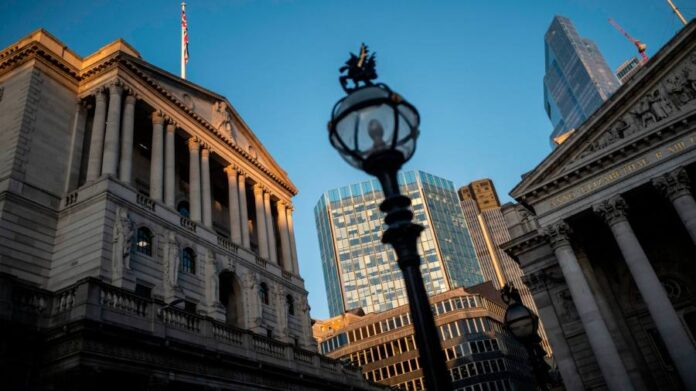The Bank of England has fully unwound the bond-buying programme it initiated when Liz Truss was prime minister, bringing to an end the emergency measures needed to stabilise the UK economy after her disastrous “mini” Budget.
Announcing it had sold £19.3bn of government bonds back to “interested buyers” in a “timely but orderly unwind of this portfolio”, the BoE put the last elements of the Trussonomics crisis response to bed on Thursday.
It said in a statement that it had sold the bonds at a pace that did not trigger renewed dysfunction in the crucial government bond markets.
Shortly after the “mini” Budget on September 23, the UK government lost the confidence of international currency and bond markets. This resulted in a huge leap in government borrowing costs, a fall in sterling to its weakest ever level against the US dollar and a crisis in parts of the pension system.
Defined benefit pension providers were forced to sell the long-dated government bonds they owned to meet sudden calls for cash as their value tumbled, sending the market into a tailspin.
The BoE announced its intervention on September 28. It pledged to temporarily create money and buy up to £65bn of long maturity government bonds and index-linked bonds to give pension funds time to sort out their temporary financing troubles.
In the end, the central bank did not have to use the full financial firepower it had put on the table, partly because its commitment to intervene stabilised markets. Andrew Bailey, the bank’s governor, put his job on the line by warning pension funds they had a limited time to repair the damage to their finances before the BoE ended its crisis measures.
The action to buy bonds was doubly difficult for the governor because the BoE was at the time selling government bonds — quantitative tightening — as part of a programme of normalising its interventions in financial markets 14 years after the global financial crisis.
Simultaneous buying and selling of bonds was difficult for the BoE to explain both to the public and internally, where there were differences between monetary policy priorities and those of financial stability.
The bank’s actions helped resolve the crisis in the UK pension system but did not save the careers of Truss or Kwasi Kwarteng, her chancellor.
The BoE is still planning to sell £80bn of the government bonds it bought under the successive quantitative easing programmes since 2009 by the end of the first quarter.
Credit: Source link















